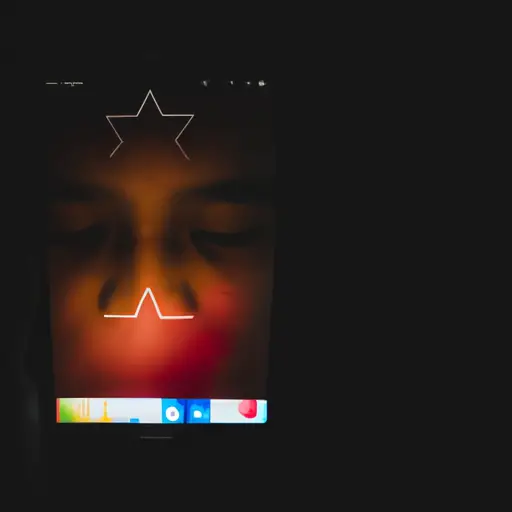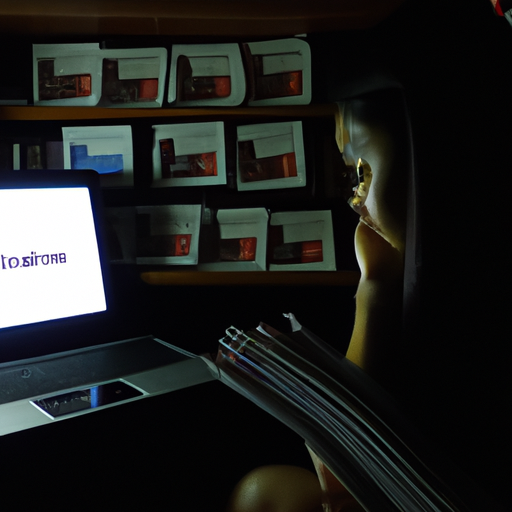Ever wondered why you can’t resist the urge to check up on your ex on social media after a breakup? Well, there’s a scientific explanation for it. The truth is, you engage in a little "social media stalking" to satisfy your curiosity and find closure. It’s not that you’re being creepy or intrusive, but rather seeking emotional attachment and reliving the memories you once shared. Additionally, the fear of missing out (FOMO) and jealousy play a role in this behavior. And let’s not forget the dopamine effect, which keeps you addicted to the thrill of scrolling through their profiles. So, next time you find yourself scrolling through your ex’s Instagram, know that there’s a scientific reason behind it.
Key Takeaways
- Stalking exes on social media satisfies curiosity, seeks closure, and helps relive memories.
- Social media stalking can trigger fear of missing out (FOMO) and jealousy.
- The dopamine effect and addiction to social media stalking can have negative mental health consequences.
- Strategies for moving forward after a breakup include self-care, seeking support, focusing on personal growth, and limiting social media exposure.
The Role of Curiosity and Closure

When seeking closure after a breakup, you may find yourself driven by curiosity to stalk your ex on social media. This behavior can be understood through the lens of cognitive dissonance and self-esteem, as well as social comparison and self-validation. Research has shown that after a breakup, individuals often experience cognitive dissonance, a state of mental discomfort caused by contradictory beliefs or values. In this case, the conflicting beliefs may involve still caring for your ex while also wanting to move on. By stalking your ex on social media, you engage in a form of self-validation, where you seek reassurance that you made the right decision or that your ex is still pining for you. Additionally, social comparison plays a role in this behavior. By comparing yourself to your ex’s new partners or their life without you, you attempt to alleviate feelings of low self-esteem and regain a sense of self-worth. However, it’s important to note that this behavior can be counterproductive and hinder the healing process. Transitioning into the subsequent section about emotional attachment and reliving memories, it becomes evident that stalking your ex on social media can also lead to emotional attachment and prolong the recovery from the breakup.
Emotional Attachment and Reliving Memories

To maintain emotional attachment and relive memories, you may find yourself revisiting your ex’s social media profiles after a breakup. This behavior is driven by the deep emotional bond you once shared with your ex-partner. Research suggests that attachment and healing are closely intertwined, and reliving memories can be a way to cope with the loss and navigate the emotional aftermath of a breakup.
Attachment theory posits that humans have an innate need for emotional connection and seek close relationships for comfort and support. When a relationship ends, it can be challenging to detach emotionally from someone who was once a significant part of your life. By revisiting your ex’s social media profiles, you are attempting to maintain a sense of emotional connection, even if it is no longer reciprocated.
Reliving memories through social media can also serve as a form of social comparison. When you see your ex-partner thriving or moving on, it can trigger feelings of self-doubt and lower self-esteem. This comparison can intensify the emotional pain of the breakup and hinder the healing process. It is crucial to remember that social media often portrays a curated version of reality, and comparing your journey to your ex’s is not a fair representation of your own progress.
While revisiting your ex’s social media profiles may provide temporary comfort or a sense of connection, it is important to recognize that true healing comes from within. Engaging in self-care activities, seeking support from loved ones, and focusing on personal growth are more effective strategies for moving forward after a breakup.
Fear of Missing Out (FOMO) and Jealousy

Do you ever wonder why you feel a sense of fear and jealousy when you see your ex thriving on social media after a breakup? The answer lies in the fear of missing out (FOMO) and the detrimental impact of social media on self-esteem. FOMO is a pervasive feeling of anxiety and unease driven by the belief that others are experiencing more enjoyable or fulfilling experiences than oneself. When we see our exes on social media, showcasing a seemingly perfect life, we can’t help but compare ourselves to them. This constant comparison fuels our fear of missing out on the happiness and success they appear to be experiencing.
Social media exacerbates this fear by creating a platform for individuals to curate and highlight only the best aspects of their lives. It becomes a constant reminder of what we lack or have lost. Research has shown that prolonged exposure to social media can lead to decreased self-esteem and increased feelings of envy and jealousy. We see our exes surrounded by new friends, engaging in exciting activities, and achieving their goals, while we may be struggling to move on. This stark contrast intensifies our feelings of fear and jealousy.
To overcome these negative emotions, it is essential to remember that social media only shows a selective and often distorted view of reality. It is crucial to focus on our own journey and prioritize self-care. By limiting our exposure to social media and practicing self-compassion, we can break free from the grip of FOMO and jealousy and regain our self-esteem.
The Dopamine Effect and Addiction to Social Media Stalking
One major factor behind our addiction to stalking our exes on social media after a breakup is the dopamine effect. Dopamine is a neurotransmitter that plays a key role in reward-motivated behavior. When we engage in activities that are pleasurable or rewarding, such as stalking our exes on social media, our brain releases dopamine, creating a sense of pleasure and satisfaction. This dopamine release reinforces the behavior, making us more likely to repeat it.
Here are three key reasons why the dopamine effect contributes to our addiction to social media stalking:
-
Psychological impact: Stalking our exes on social media provides a temporary escape from the pain and emotions associated with a breakup. It gives us a sense of control and familiarity, helping to alleviate feelings of loss and rejection.
-
Cyberstalking consequences: The excessive use of social media to stalk our exes can have negative consequences on our mental health. It can lead to increased feelings of jealousy, low self-esteem, and anxiety. Additionally, constantly comparing ourselves to our exes’ new lives through social media can further exacerbate these negative emotions.
-
Reinforcement loop: The dopamine release we experience when stalking our exes creates a reinforcement loop, making us crave more of that pleasurable feeling. This can lead to a compulsive behavior pattern, where we constantly check their profiles, seeking that temporary sense of reward.
Understanding the dopamine effect and its role in our addiction to social media stalking can help us gain insight into our behavior and ultimately break free from the cycle.
Frequently Asked Questions
How Long Does It Typically Take for Someone to Stop Stalking Their Ex on Social Media After a Breakup?
It usually takes a while for someone to stop stalking their ex on social media after a breakup. The psychological impact of post-breakup social media stalking can be detrimental. To break the habit, try implementing strategies like blocking or unfollowing them.
Can Stalking an Ex on Social Media Actually Provide Closure?
Stalking your ex on social media might seem like closure, but it can actually hinder emotional healing and moving on. Research shows that focusing on yourself and engaging in positive activities is more beneficial.
Is There a Difference in Behavior Between Men and Women When It Comes to Social Media Stalking After a Breakup?
Societal expectations play a role in shaping men and women’s behavior in social media stalking after a breakup. Emotional attachment influences the frequency and intensity of stalking. Understanding these factors can provide insight into post-breakup behaviors.
Are There Any Negative Psychological Effects of Constantly Stalking an Ex on Social Media?
Constantly stalking your ex on social media can have negative consequences on your emotional well-being. It can lead to increased feelings of sadness, anxiety, and even depression, as it keeps you stuck in the past and prevents you from moving on.
Can Social Media Stalking After a Breakup Lead to a Rekindling of the Relationship?
Social media stalking after a breakup can have the potential to rekindle the relationship by allowing you to keep tabs on your ex’s life. However, it can also have a negative emotional impact, leading to more pain and prolonging the healing process.
Conclusion
You may think that stalking your ex on social media after a breakup is just a harmless habit, but there is scientific reasoning behind it. The need for closure, reliving memories, fear of missing out, and even addiction to the dopamine rush all play a role in this behavior. In fact, a study found that 88% of people admitted to checking their ex’s social media profiles regularly. This statistic highlights the prevalence of this behavior and emphasizes the deep emotional impact breakups can have on individuals.

Leave a Reply